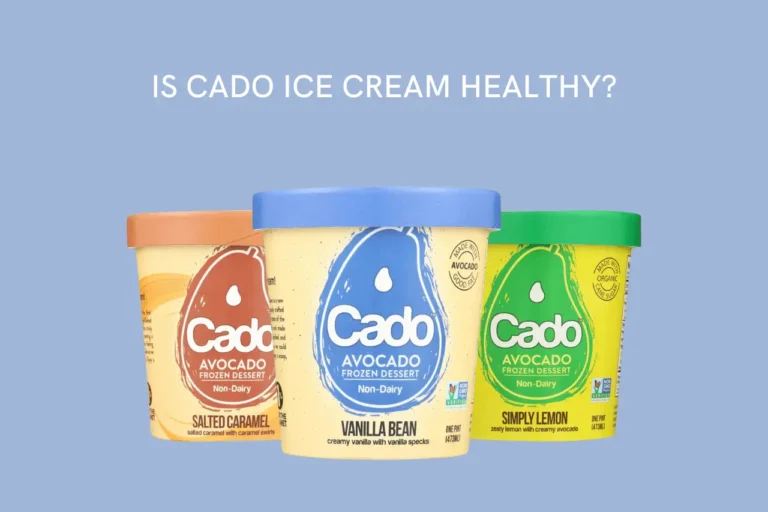Cadbury Dairy Milk chocolate is one of the most loved chocolates in India, with the highest market share among all the chocolate brands. It was launched in India in 1948 but was not so famous. However, Its popularity rose in 1994.
Since then, It has attracted consumers from all age groups, be it an adult or a child and continues to rule the hearts of many because it is easily accessible to the public. It has become a popular food product that millions enjoy daily, thanks to its unique, rich, and sweet taste.
While dairy milk has a delicious and unique taste, I have compiled a list of six reasons why dairy milk chocolate is not good for your health.
Let’s start with analyzing the ingredients of dairy milk.
Ingredients in Dairy milk chocolate
Dairy milk chocolate comes in different varieties. Some of the most common ingredients include sugar, milk solids, cocoa butter, cocoa solids, edible vegetable fat, Emulsifiers(442, 476) and artificial flavours.
Let’s see each of the ingredients in detail.
Milk solids
Milk solids are the proteins and fats extracted from milk when it is dried out, and the water is removed. It adds a uniform texture to chocolate and enhances its taste.
Cocoa butter
Cocoa butter is the fat extracted from the cocoa bean used to make chocolate. It is a hard fat that distributes evenly in chocolate, making it smooth and glossy. It consists of a combination of saturated and unsaturated fatty acids. Also, it is a decent source of vitamin E.
Cocoa solids
Cocoa solids are the dry cocoa powder that remains after the cocoa butter has been extracted. It is used to give chocolate its distinctive flavour and is also the essential source of its nutritional value.
Edible vegetable fat
Edible vegetable fats are derived from plants such as nuts, seeds and vegetables.
Emulsifiers
Emulsifiers are a type of ingredients added to food to help maintain the desired texture and consistency. These ingredients often act as stabilizers, helping to keep the oil and water in food from separating.
Artificial flavours
Artificial flavours are usually used in food to enhance the taste or smell. Commonly used artificial flavour in dairy milk chocolate is Vanillin or ethyl vanillin.
6 Reasons Dairy milk chocolate is not good for health
Dairy milk chocolate is high in sugar
One of the biggest reasons dairy milk chocolate is not good for your health is its high sugar content.
A 100 grams serving of chocolate has 57.3 grams of sugar, about 14 teaspoons of sugar.
According to the American heart association, the daily sugar limit for men is 36 grams and for women is 25 grams.
Eating a single 100gm bar of dairy milk chocolate provides you with more than 100% of the daily sugar limit, which might overload your body with too much sugar.
Eating too much sugar on a daily basis can lead to many health issues such as:
- Weight gain
- Obesity
- Diabetes
- Fatty liver
- High blood pressure
- Liver disease
- Mood problems
Does dairy milk have any sugar-free chocolate?
No dairy milk does not contain any sugar-free chocolate. However, it has a chocolate variety with a mark of 30% less sugar, but it still has 37.8 grams of sugar, which is too much.
Dairy milk chocolate contains unhealthy fats
While fats are essential to a healthy diet, not all fats are good for your body.
Dairy milk chocolate contains a high amount of saturated fat from cocoa butter. A 100 grams serving has 17.5 grams of saturated fat, which is more than 100% recommended by the American Heart Association on a daily basis.
Many studies over the decades have shown that high consumption of foods containing saturated fat can result in many health problems such as:
- High cholesterol levels
- Memory problems
- Increase in weight
- Heart attack
- Stroke
Dairy milk chocolate is high in calories
The combination of high sugar and fat content in dairy milk chocolate makes it relatively high in calories. 100 grams of dairy milk chocolate has 523 calories, about 25% of the daily recommended.
While a good amount of calories are essential to fuel your body, consuming too many of them can lead to unexpected health outcomes such as:
- Overweight
- Obese
- High triglycerides level
- Type-2 diabetes
Dairy milk chocolate can lead to weight gain
If you’re on a diet or concerned about your weight, you should limit eating dairy milk chocolate as it may not be good for you.
The combination of sugar, unhealthy fats and high calories makes it one of the worst foods to eat during weight loss. Your body may crave something sweet, but there are plenty of other healthy foods to eat.
It’s better to look for chocolate that labels 100% cocoa(dark chocolate) as it has less sugar.
Dairy milk chocolate can contribute to cavities
It has been known that eating too much chocolate is bad for teeth. The culprit behind this is nothing but sticky sugar in chocolates.
The sugar in chocolate stays in your mouth longer than other foods. The longer sugar stays in your mouth, the more time it has to damage your teeth.
In addition, the bacteria in your mouth turn sugar into acids, which slowly eat away at the surface of teeth leading to tooth decay and cavities.
Dairy milk chocolate uses artificial flavours
Dairy milk chocolate uses artificial flavours to improve texture and taste so that every bite is a mouthful of “Mmmmm.”
While the use of artificial flavour Ethyl Vanillin is considered safe in the limit, it has been reported of some minor side effects when taken in large doses, such as:
- Weakness
- Constipation
- Tiredness
- Blindness
How much caffeine is present in dairy milk chocolate?
The official Cadbury website states that every bar of chocolate contains a minimum of 20% cocoa solids. Caffeine is naturally found in cocoa solids. So the more cocoa solids chocolate has, the more caffeine it will have.
Generally, dark chocolate contains more caffeine than Milk chocolate. At the same time, white chocolate does not contain any caffeine.
Dairy milk is milk-based chocolate with at least 20% cocoa solids, meaning it may contain the same caffeine as a cup of coffee. This could be 40mg to 50mg of caffeine.
If you want a high level of caffeine in your chocolate, go for dark chocolate with the maximum amount of cocoa solids.
How much dairy milk chocolate should you eat in a day?
First of all, there is no need to consume chocolate on a daily basis. Because with each bite, your body will crave chocolate more and more as the days pass. However, if you can control your dose, you can eat chocolate on a daily basis and enjoy its benefits.
Whether it’s dairy milk chocolate or any other chocolate brand, experts recommend eating approximately 20 grams to 30 grams daily. Eating more than that can provide you with too many calories.
Is dairy milk chocolate safe during pregnancy?
Chocolate is generally considered safe for women when they are pregnant. In fact, some studies have indicated that eating chocolate in moderation may be beneficial to helping with preeclampsia, lowering risk of high blood pressure and improving blood flow.
While dairy milk chocolate consist of high levels of sugar and unhealthy fat, it can still be enjoyed by pregnant women in moderation.
Final words
The word chocolate is something that most of us like to hear. The thought of chocolate instantly conjures up images of blissful pleasure, a momentary escape from the humdrum of everyday life.
While the dairy milk chocolate is loved my many, don’t forget that eating too much is not good for your health due to its high sugar, unhealthy fats, and calories content.
If you really want to get that positive effects on your mood and feelings of wellbeing from chocolate, it’s best to eat in moderation.
Found this information helpful? Share it with the world
Meanwhile, here are a few other posts that might be helpful for you.




